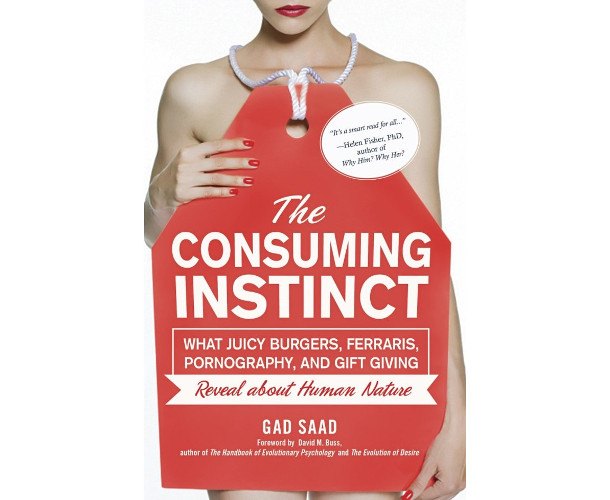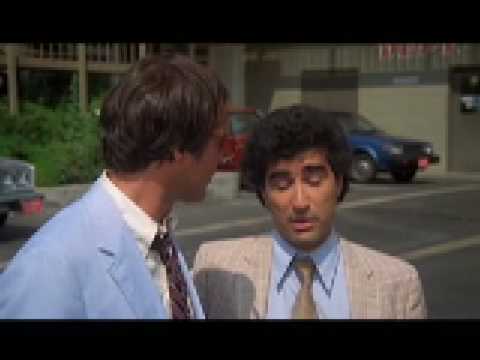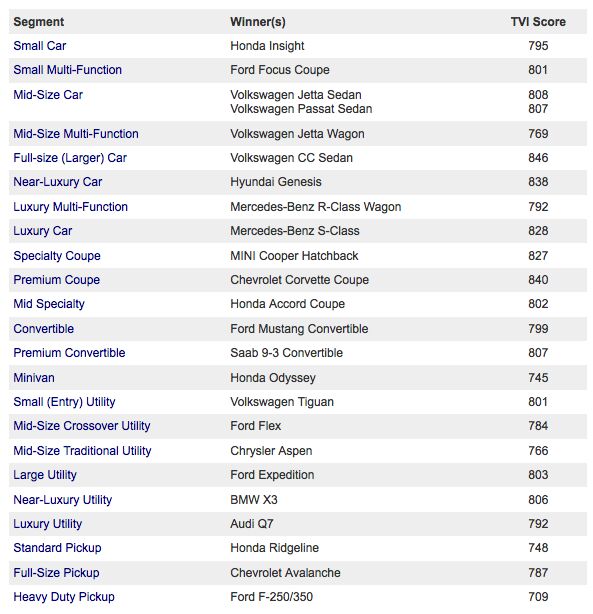#consumers
The Saad Truth About Sex, Cars, and Consumers
Gad Saad is an evolutionary behavioral scientist who is a professor of marketing at Concordia University in Canada. He’s also an associate editor of the journal Evolutionary Psychology and writes a popular blog for Psychology Today. Some have called him part of the “intellectual dark web”, a diverse group of heterodox academics who are willing to tack against the prevailing winds of thought conformity on today’s college campuses.
Saad applies the principals of evolutionary biology to consumers, but he uses the word consumers in its broadest definition, not just buyers, as humans make many choices about how we use many things. One area of his research has been how hormones affect consumers and also how consuming can affect hormones, in both sexes. For example, when men drive Porsches, their testosterone levels go up.
QOTD: Did The Griswold's Family Truckster Kill the American Station Wagon?
At one point few vehicles epitomized the American family car as the station wagon, particularly of the fullsize variety. Today, most car companies are pretty much convinced that American consumers will not buy station wagons. A few of the European luxury brands offer them here, but for the most part wagons are not welcome in the contemporary automotive scene in the U.S. According to Pete Bigelow of AOL Autos, the fault for that lies with the vehicular star of 1983’s “National Lampoon’s Vacation” — the Wagon Queen Family Truckster, a hideous pastiche of just about every bad malaise era styling trend appliqued over a Ford LTD Country Squire.
Honda Calls For Compliance From Consumers Regarding Recalls
Just as the federal government wants Honda and Takata to fix the airbags in the former’s vehicles, Honda would like consumers to bring in said vehicles for repair.
Even if it means involving the government.
Hammer Time: Are Shareholders Worth It?
Capitalism has no loyalties.
Everybody is replaceable.
Products. Employees. Employers. Services. Alliances. Joint Ventures. Financiers. Even the executives of multinational firms along with their board of directors are only as good as whatever quarterly numbers can be cooked up by their ‘independent’ auditing firm.
Capitalism is the ultimate “Let’s go!”, “Do it!” and “Screw you!” of economic systems. You name the angle or need in capitalism, and chances are that there is a market substitute that can immediately fill the gap. Even government regulations can be routinely challenged by trade organizations, international courts, and the all too common political handshake.
All this reality happens… on paper.
Hammer Time: 'Old' New? < or > 'All' New?
The best deal.
Most consumers use this phrase interchangeably with what they really want. The best car.
The question is whether they can find both at the same place.
Question Of The Day: Should Automobiles Be Marketed… For A Lifetime?
The average Toyota Camry likely sells for somewhere in the neighborhood of $25,000.
What if you could buy a more durable version of that Camry for, say, $33k…. and get a bumper to bumper lifetime guarantee?
What Car Buying Can Teach Us About Consciousness (And Vice Versa)
Are car buyers rational? Anyone who deals with car-shopping consumers on a regular basis would probably answer with a hearty “no.” In fact in my experience, helping prospective car buyers navigate the many considerations and options available on the market usually ends with me throwing up my hands and saying “if you like a car, just buy it.” But according to research cited by Wired’s Jonah Lehrer, conscious reasoning might not be the ideal way to shop for a car in the first place. Sometimes “going with the gut,” and making a decision without thinking it through is the best way to solve complex choices like finding the car that’s perfect for you.
Where Are Our Green Car Priorities?
As a relatively pragmatic person who generally chooses the imperfect-yet-achievable path rather than agonizing over the perfect-but-unattainable goal, this chart [from a fascinating Boston Consulting report, in PDF here] frustrates me. I understand why Americans choose hybrid-electric cars as their most favored “green car” technology, but from their it gets fairly crazy. EVs are fantastic on paper, but in the real world they’re still far too expensive, their batteries degrade, they have limited range, oh and did I mention that they’re freaking expensive? Biofuels, America’s third-favorite “green” transportation technology can be fantastic in certain limited applications, but the ongoing ethanol boondoggle proves that it will never be a true “gasoline alternative.” Finally, at the bottom of the list, Americans grudgingly accept only relatively slight interest in the two most promising short-term technologies: diesel and CNG. Neither of these choices is radically more expensive than, say, a hybrid drivetrain and both are considerably less expensive and compromised than EVs at this point. So why are we so dismissive of them?





















Recent Comments